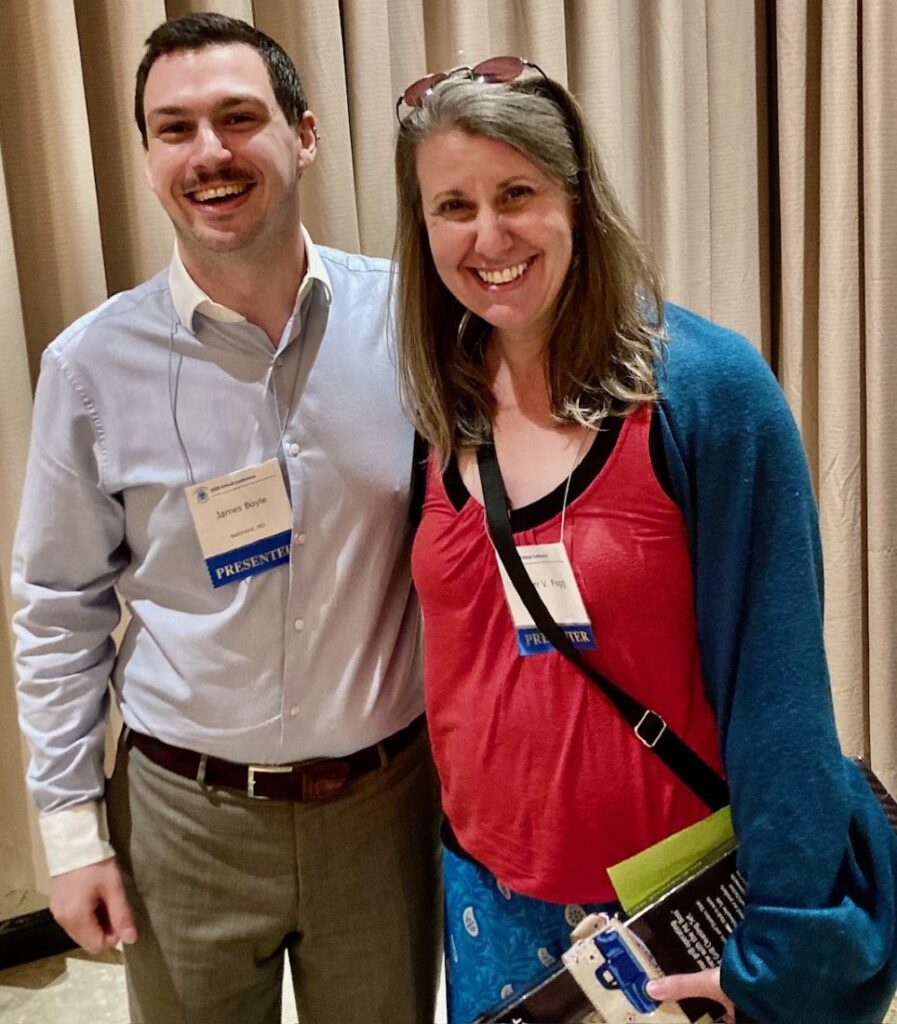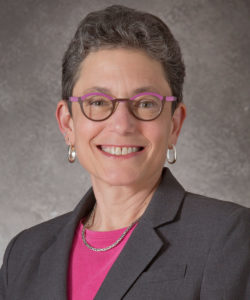Last month, RSI welcomed Heather Fogg as RSI’s new Chief Executive Officer. Heather comes to RSI with an extensive background in court-connected alternative dispute resolution and research. Her expertise includes directing court mediator excellence programs; managing a state court’s ADR data collection tool; and designing and delivering restorative justice practices across a diverse range of sectors. Heather has guided the evaluation, design and data analysis of grant-funded ADR programs; coordinated workshops and training sessions for court ADR program managers, mediation trainers and mediators; and led and mentored scores of researchers and ADR practitioners. For more details on Heather’s background, read her bio on RSI’s website.

Recently, Heather sat down for a Q&A to help us begin to get to know the person behind the resume, including what led her to a career in ADR, what motivates her, and some of the aspects of conflict resolution she is passionate about.
How were you first introduced to alternative dispute resolution, and what drew you to it as a career?
I first learned about alternative dispute resolution when leading discussion sections for a course in Criminal Justice 101. The text we used had a brief section about restorative justice, referred to as victim-offender mediation. The process was described as a chance for the people most directly impacted by what happened to come together with a mediator to talk about: 1) what it was like for each of them, and 2) what they each needed in order to make things better. That made so much sense to me — focusing the problem-solving and decision-making on those who were the most familiar with both how the event itself, as well as any effort to resolve it, would affect them personally. I’ve been fascinated by this approach to engaging with conflict and addressing harm among people ever since.
It’s also deeply personal for me. People have broken into two of my homes and two of my cars (all four instances at different times and states). I know the fear, grief and anger those experiences brought to me and my family. I know the challenges we faced in trying to understand the criminal and legal system to make the aftermath of those experiences better. I have no idea why people chose our house or my car, or what conditions in their lives brought them to make this choice. I can see how having an expanded variety of options to meet directly with one another through alternative dispute resolution can bring a different kind of closure, accountability and healing to people who seek them. That’s part of why I have focused my work on seeing what’s possible when we create these opportunities for people who want them.
What appealed to you about working at RSI specifically?
So many things! One thing that has been very important to me is that whatever I’m choosing to give my time and attention is actionable, implementable and purpose-full (yes, you’re seeing that correctly; I wrote it that way intentionally). That’s something I see in everything RSI does, from gathering resources to be shared broadly, to answering compelling research questions, to providing direct services where they might be sorely needed.
Are there any “big questions” related to court-based ADR that interest you in particular?
There are so very many; I’m struggling to name just a few! And admittedly, some may not be so big. I’m very curious about some of the more practical and logistical aspects of court-based ADR, such as: What impacts will changes in technology continue to have, and how will our standards of practice continue to change to meet them? How does the setting where court-based ADR takes place impact how people react and respond within it? And what can we as ADR practitioners learn from the variety of ways people interact with conflict, in order to support them well?
You recently presented at the Center for Alternative Dispute Resolution’s Annual Conference. Can you tell us a little about the topics and how/why you decided to present on them?

I am very fortunate and grateful to Marvin Johnson and Linda Sternberg of the Center for ADR for inviting me to present, and lucky to have incredible friends and colleagues, Kendra Jobe and James Boyle, to develop topics with me. Kendra and I have been working together for years, and one thing we often talk about is the great variety of approaches and processes we’ve learned within the umbrella of ADR — from restorative practices, to group facilitation, to different mediation frameworks. Rather than framing it as though there might be only one “best way” to practice, we invited practitioners to consider: How does the process (or framework within a process) you are the most enthusiastic about fit your own worldview, personality or perspective on conflict? The range of responses and reflections that practitioners offered, as well as the practical tips, techniques and strategies they shared, made the conversation very rich and informative.
The Maryland Standards of Conduct for Mediators is also near and dear to me. In a mediator ethics session, James and I invited mediators to consider how our ethical practice doesn’t come up only when a specific dilemma surfaces, but also in the everyday decisions and actions we take as mediators throughout the mediation process. It’s been important to me to think of any set of standards we use as a constant reminder about why I wanted to become a mediator in the first place: to hold a process where those most directly impacted by the outcomes would have full say and decision-making in what will happen next. I would like mediators to consider that such standards give us guidance in everything we do, say, don’t do or don’t say … and not just when we see a specific dilemma (that may make us suddenly remember to reread them and consider our role).
Is there a book on conflict resolution that you always find yourself recommending (and why)?
This is a wonderfully dangerous question to ask me because one of my favorite things to say is, “I just read {insert book title}, and now I’d love to talk with you about it!” My favorite books about any subject are those that invite the reader to upend their understanding and really look at something from a wholly different perspective. Among my favorite books to do just that in the conflict engagement field are “Justice As Healing: Indigenous Ways” by Wanda D. McCaslin; any of the number of books written by Rupert Ross; “The Outward Mindset” and “Anatomy of Peace,” both by the Arbinger Institute; and “The Conflict Pivot: Turning Conflict into Peace of Mind” by Tammy Lenski.
Have you had a chance to think about any short- and long-term goals for RSI at this point?
One of the things I like that I’m learning about with RSI is the goal to be intentionally reaching more people around the country. I would like to see us have a relationship with at least one court-connected ADR person in every state. So, if you’re reading this now, and you know someone in another state who we should be introducing ourselves to, drop me a line and help us connect (hfogg@aboutrsi.org). I would like RSI to connect with more people around the country who are interested in court ADR as much as we are!
Is there something you’ve learned since starting at RSI that surprised you?
One thing that has really stood out to me is how RSI has such a strong reputation for advancing court ADR that people regularly come to RSI with questions they’re pondering and ideas about how RSI can help them answer them. The depth of relationship and expertise that it shows about RSI is something I feel honored and proud to join.
What keeps you inspired and going when things get tough?
Oddly enough, it’s watching the animals* who live with me squabble, full-on fight, and then get over it, and often even snuggle immediately with each other again. It reminds me that maybe we can follow their example and find our way through conflict without permanently shutting one another out as well. (*Note, I live with seven indoor cats and three delightfully loud parrots. Knowing we can all successfully live together through our conflicts and spats … gives me hope.)




